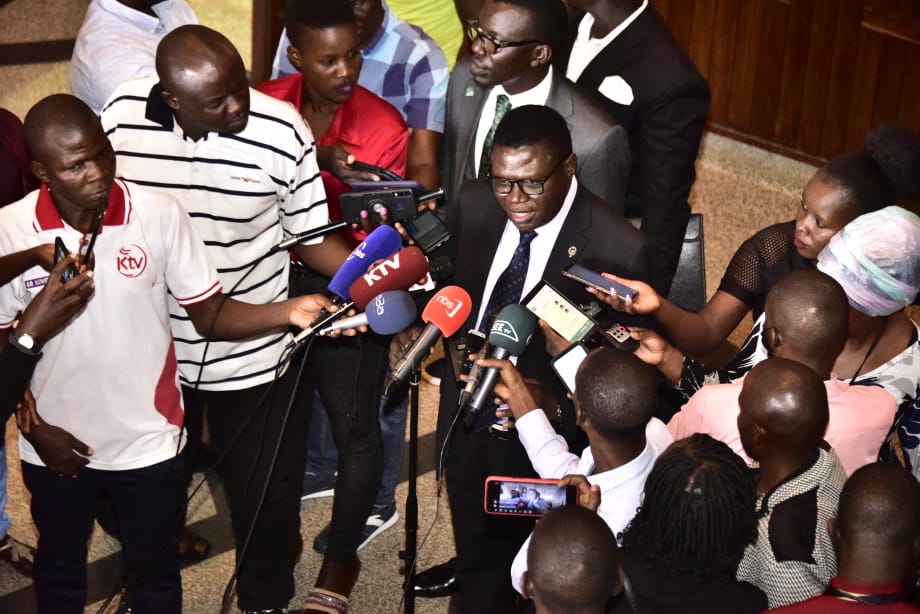Prime
It is time to return to individual merit

Emilly Comfort Maractho
What you need to know:
- “There is no reason to be angry about Mao’s search for relevance...”
Some Ugandans are supposedly angry, or disillusioned, that Democratic Party (DP) president Norbert Mao decided to cooperate with the National Resistance Movement (NRM). Mao has been man of the week - from the cooperation to appointment and confirmation as the Minister for Justice and Constitutional Affairs. If only government was always this efficient all the time.
Maybe for once, there is a person in that position who understands what is really at stake, at this point in time, if he chooses to use his prerogative well or the system he joins allows him. It will be interesting to watch. I congratulate chairman Mao.
Some DP members do not wish to per take of the bread that their president has painstakingly baked, with many ingredients, put on a silver platter with mouthwatering benefits for him and others in the party. There is no possibility for these members, to look at the bright side. Mr Mao must go, is all they are interested in, feigning ignorance of the ‘good’ deal.
It is a wonder, that people did not see this coming. The signs were there, for a while, going back to the preparations for 2016 elections, when Opposition political parties were trying to forge a united front for the presidency. Perhaps earlier too, but that was the more evident one. Majority of the people who seemed suspect at that time have taken positions one by one.
It is easy to vilify Mr Mao in this whole situation, accusing him of a sellout, desperation for a job, and the entire list of failings. And these Ugandans who are angry, where have they been to vote for Mr Mao to be president in all past presidential elections? If the performance in those elections are anything to go by, the relevance of Mr Mao in Uganda’s polity was not fully appreciated. There is no reason to be angry about his search for relevance in other relationships.
To be fair, Mr Mao demonstrates that he has no illusions. Unlike those who have joined before, he has gone ahead to craft an agenda for cooperation, defined terms, named his price and created boundaries. In this negotiated democracy, where people use all kinds of networks to lobby for slots in good places, this should not be a Mao problem but a system that thrives on it.
Sometime in 2019, I was on NTV-Ugandas’ Fourth Estate programme. We discussed the possibilities of Mr Robert Kyagulanyi, alias Bobi Wine, winning the presidential elections if he chose to contest. I was amused, that some serious people were really convinced that Mr Kyagulanyi would win a presidential election in Uganda and his opponent would be President Museveni.
At the time, some people accused me of not appreciating Mr Kyagukanyi’s ‘great leadership’ potential. My point was that the manner in which we practiced multiparty democracy, did not create space for those who do not belong to the NRM to eat by the road. Entering that humongous bus, from the other side, is truly rewarding, even if temporarily for some.
I was told to watch the space. I learnt a lot studying the 2001 presidential elections, and not much has surprised me since – not the lifting of term and age limits, or the many inexplicable things we deal with.
While the signs have been there that Mr. Mao would sooner or later cooperate with the NRM, it became fairly urgent during the weeks of mourning the former Speaker, Jacob Oulanyah. I remember watching the funeral service with a friend and telling them it would not be long before Mr Mao is drawn into the Cabinet.
He seemed like the natural substitute to fill the deep political void that the NRM would experience from the loss of the speaker. The person of Mao was a right fitting. It was easy to see, that the replacement in Parliament would be left to the son, but a more challenging role would be given to Mao, with 2026 staring us in the face.
The Acholi were beginning to enjoy the dividends of their place on the high table. It was hard to see many people with a cooperative spirit that would support the NRM agenda beyond Mr Mao. Even if he did not want, the elders would have made it clear that he owed it to the Acholi to deepen relations and the favour that they seemed to be enjoying from the NRM. DP was on a steady path to following in the footsteps of the Uganda Peoples Congress, accepting cooperation and cabinet positions while purporting to remain opposition parties.
Maybe it is about time we returned to individual merit or broad-based, and stop pretending that we are a multi-party democracy. We function as anything but a multiparty system, with weak spaces and trouble for belonging outside the NRM. It is in the power of the MPs to get us back into our broad-based system where there is enough room for all to belong. Maybe that should be Mr Mao’s first agenda.
Ms Maractho (PhD) is the director of Africa Policy Centre and senior lecturer at Uganda Christian University.




